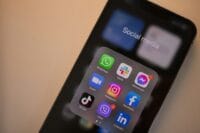Join Our Newsletter
Subscribe our newsletter to receive the latest articles. No spam.
BFFR
BFFR stands for “Best Friends for Real,” used to describe a genuine friendship. Popular on social media, it emphasizes authenticity. BFFR meaning, what does BFFR mean, and BFFR meaning in text reflect its use.
BFFR Meaning: What Does BFFR Stand For?
BFFR stands for “Best Friends For Real” — a phrase that highlights a genuine, no-fake-zone friendship. It’s used to describe someone who’s not just a best friend in name, but truly real and loyal in every sense. While it originally emphasized authenticity in friendships, it’s also evolved into a slangy way to call out someone to “be for real” when they’re not acting right.
🔍 Origin
The term BFFR is a modern evolution of the classic BFF (Best Friends Forever). As online conversations became more raw and direct, Gen Z took it a step further. “For Real” was added to emphasize honesty, realism, or truthfulness — either about a friendship or as a reaction to someone being delusional or extra online.
🧠 Usage
Affectionately:
“She’s my BFFR — we’ve been through everything together.”As a Callout:
“You think pineapple belongs on pizza? BFFR.”
(Translation: Be for real, that’s crazy.)
📈 Popularity
BFFR blew up on TikTok and Twitter (now X), with creators using it both seriously and sarcastically. The trend gained even more momentum thanks to reaction videos, memes, and audios saying “BFFR” in dramatic tones.
It’s now part of the Gen Z online vocabulary — short, punchy, and versatile.
🎯 Purpose
To highlight true friendship that stands the test of time.
To call out unrealistic or absurd behavior in a blunt but often playful way.
To join cultural convos on platforms like TikTok, Twitter, and Instagram with current lingo.
🌐 Context
You’ll see BFFR in:
Captions and hashtags: “My BFFR since day 1 🫶”
TikTok audios: “BFFR… you actually believe that?”
Tweets and comment sections when someone needs a reality check.
✅ Benefits
Quick and expressive: You say a lot in just five letters.
Relatable and current: Connects you with trending conversations.
Dual-meaning: You can use it for both love (friendship) and sarcasm (calling out BS).
📏 Social Norms
Tone matters: Saying “BFFR” with a loving caption is different from shouting it in a heated debate.
Context is key: Used playfully, it’s cool. Used aggressively, it can come off as rude.
Friends get it: Among close friends, it often becomes a running joke or inside phrase.
💡 Examples
Affectionate: “Not everyone has a BFFR who sends memes at 3 AM. I’m blessed.”
Sarcastic: “BFFR, you’re wearing socks with sandals??”
Shock: “You didn’t like The Last of Us? BFFR.”
💬 Response
When someone says “BFFR”, a typical response depends on context:
If it’s affectionate: “Always 🫶” or “You already know!”
If it’s sarcastic: “Okay fine 😂” or “LOL chillll”
Why Is BFFR So Popular?
So, why is this term trending all over social media? It’s likely because of its versatility. It’s used when someone is doing something that seems a bit off, yet you still want to keep things lighthearted. Plus, it’s got a casual vibe that fits perfectly into texting lingo, where brevity and humor reign supreme. You don’t have to use long-winded sentences when just two letters can get the job done.
How Do You Use BFFR?
BFFR works well in a variety of situations. You might send it to a friend who keeps canceling plans. Or maybe someone posts a picture with a caption that feels overly staged, and you just want to call them out with a quick, playful comment.
Here are a few examples:
- “You’re really not coming to my birthday? BFFR, you better show up!”
- “You’ve been watching Netflix for 12 hours straight? BFFR, get outside.”
Is BFFR the New LOL?
While LOL (laugh out loud) has been a staple of internet culture for years, BFFR has a sharper, more ironic tone. It’s used not to laugh, but to express a mix of disbelief and humor. It’s more relatable to situations where people are acting in a way that makes you want to call them out — but in a funny, low-stakes way.
BFFR vs. BFF
If you’re still unsure about BFFR, it helps to know that it’s basically a more sarcastic, realistic version of BFF (Best Friends Forever). While BFF suggests deep, unwavering friendship, BFFR throws a bit of shade, acknowledging that even the best friendships come with moments of doubt or frustration.





